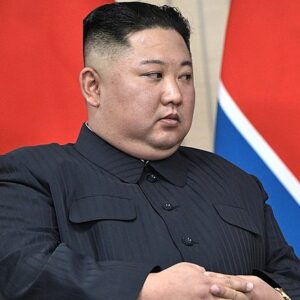A recurrent theme at a lavish Washington dinner marking the 20th anniversary of the founding of the Committee for Human Rights in North Korea was how great it would be if the committee 20 years from now had outlived its usefulness. By that time, Greg Scarlatoiu, executive director, would hope the conditions that make North Korea the world’s worst violator of the rights of its citizenry would have vanished.
A stellar cast of guests at the dinner, talking live or videotaped, spoke of the suffering of the mass of North Koreans living in poverty under the constant threat of arrest, torture, jailing, and worse, but what to do about it? As a former diplomat in Pyongyang told the gathering, even if you’re not on a tour organized by North Korean authorities, you really cannot go anywhere there without being followed. Someone will always lie in wait to report where you are and what you’re doing,
That system might appear spectacularly foolish and counter-productive, but it shows the power of the ruling elite over all its citizens. South Korean culture has penetrated North Korea thanks to the overwhelming power and appeal of K-pop as well as news and views spread via illicit broadcasts, tapes, DVDs, and even telephone and internet links that operate beneath the radar of the all-seeing security apparatus of the ruling Workers’ Party.
The penalties for discovery, however, are so high and the security so tight that breakthroughs may not be as frequent as hopeful observers would claim. Just as North Korea’s legion of security agents has managed to smother Christianity, so they’ve also largely warded off the invidious influence of anything from South Korea, the U.S.. and elsewhere that might seriously undermine the power of the Kim regime.
A deep irony of the work of the Committee for Human Rights in North Korea, and other groups such as Save North Korea is there may be less freedom for North Koreans now than before Kim Jong Un’s rise to power after the death of his father Kim Jong Il nearly ten years ago. Kim Jong Un has been far more successful than his father and grandfather, regime founder Kim Il Sung, in closing down escape routes.
By now more than 34,000 North Koreans have defected to South Korea while thousands more remain in China, constantly eluding Chinese authorities eager to return them to the clutches of the North Korean system. Fixers, once able to get North Koreans through China by massive bribes and contacts, now seem almost incapable of helping anyone. Kim has ordered the construction of formidable physical barriers blocking access to the Tumen or Yalu river borders with China, and North Korean border guards are afraid to take bribes for looking the other way.
Scarlatoiu noted it’s one thing to expose the long record of abuses in North Korea and quite another to stop them. The UN Commission of Inquiry into North Korea’s appalling assault on basic human rights no doubt provided authoritative information based on exhaustive research, but what difference has it made? Those advocating an end-of-war agreement with North Korea, even a peace treaty, have no trouble dismissing the UN report as propaganda.
North Korean diplomats at the UN Human Rights Council denounce what they regard as falsehoods perpetrated by the North’s enemies. Fred and Cindy Warmbier, whose son Otto suffered through a year and a half in a North Korean prison, only to die soon after he was returned home in a coma, denounced the end-of-war idea with the North as “nonsense,” but what can anyone do about the horrors of North Korean life beyond mere words?
Among the greatest impediments to exposing the North’s human rights record is the policy of the South Korean government, afraid of offending Kim Jong Un while promoting dialog. In that spirit, President Moon Jae-in has stopped defectors from firing balloons laden with leaflets over North Korea.
But how long can North Korea betray its own people, denying rights that are routine in any civilized society?
David Hawk, author of “Hidden Gulag,” a ground-breaking study of the North’s vast prison system, was among those hoping that the Committee on Human Rights in North Korea would not have to exist for another 20 years. It was largely due to the efforts of HRNK that the gulag system was revealed. The organization has contributed mightily to understanding and knowledge of what’s really going on there even if it’s still unable to reverse the trend.

